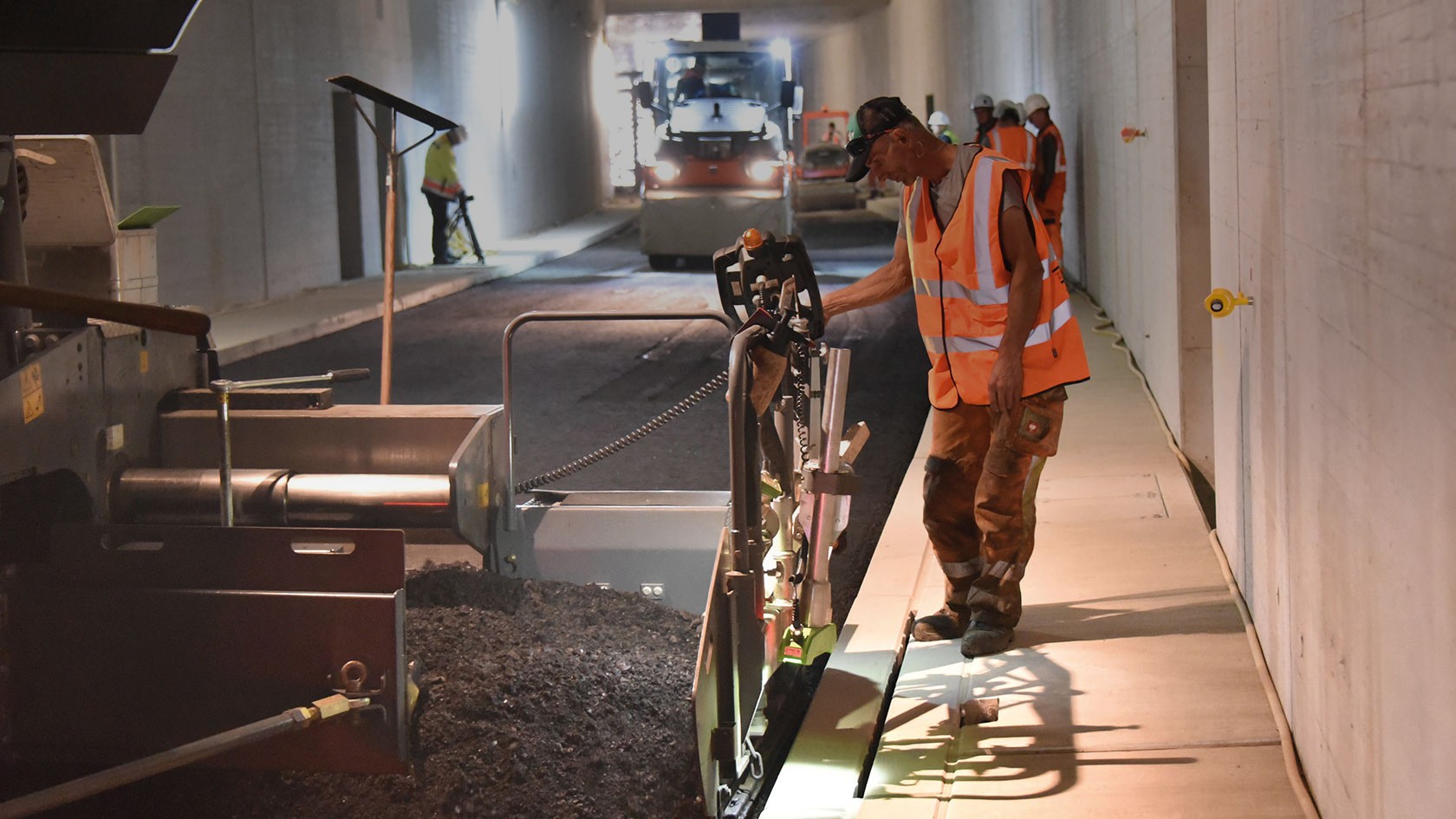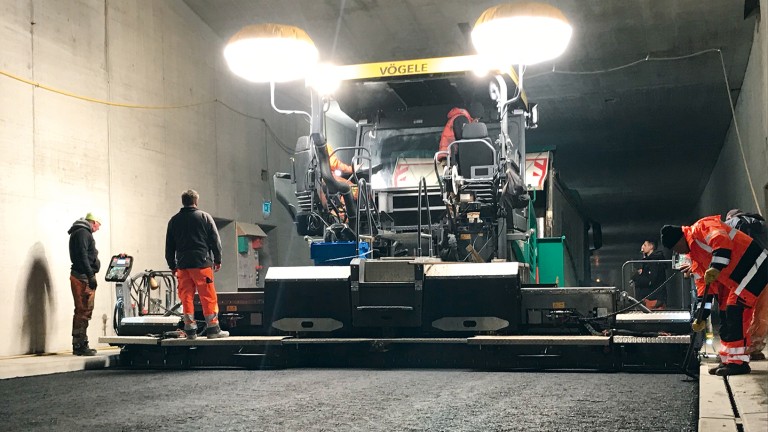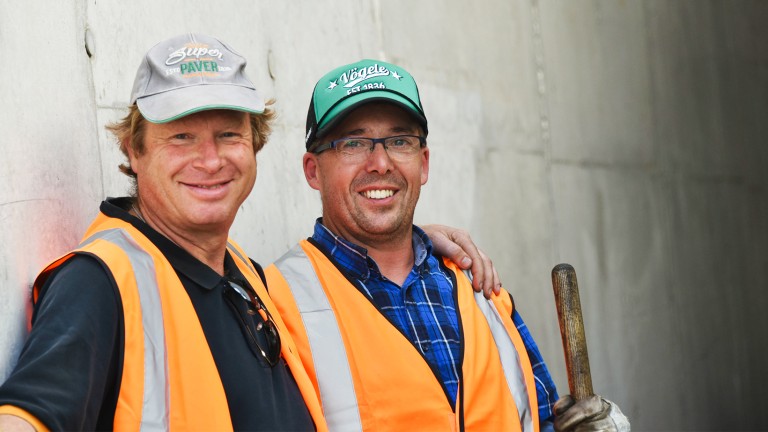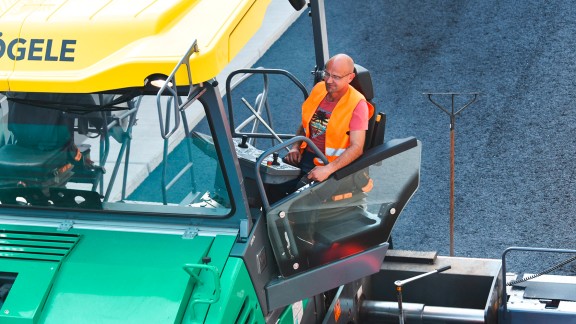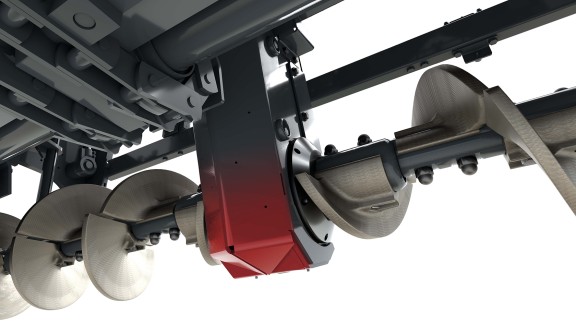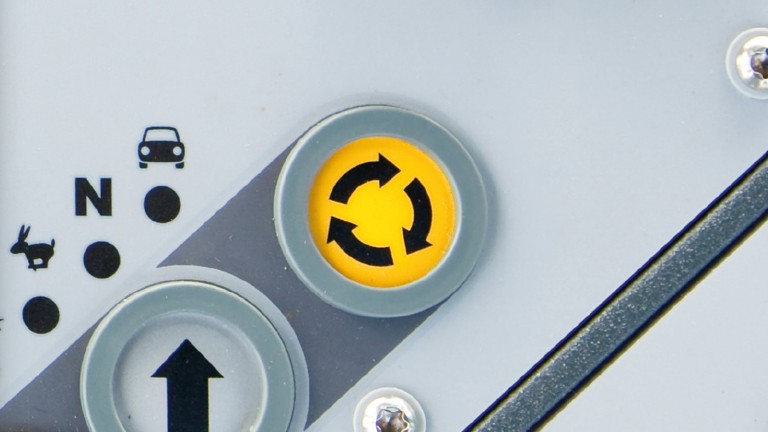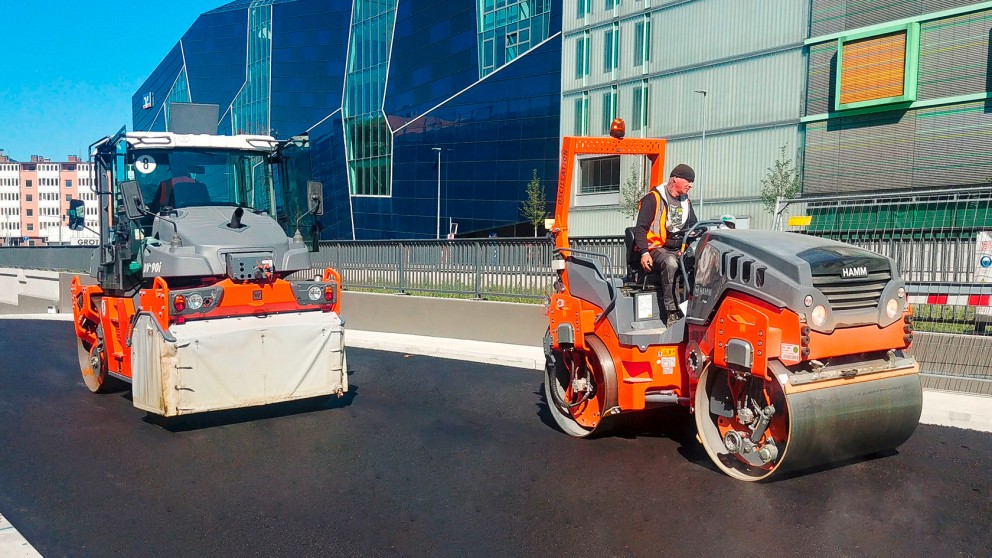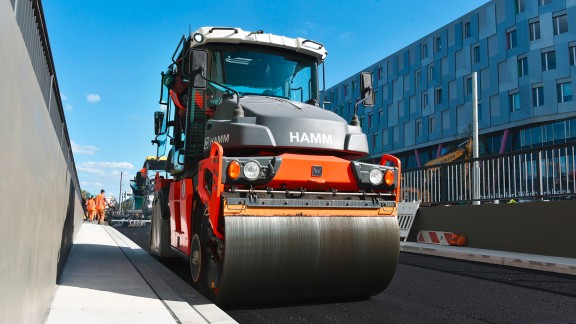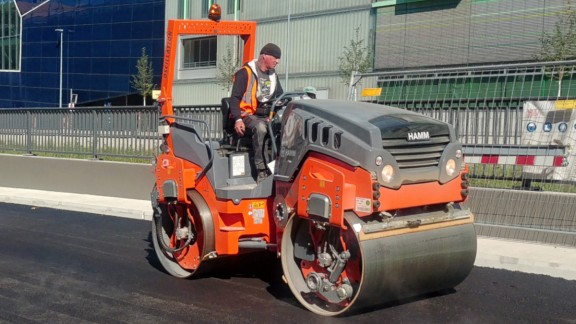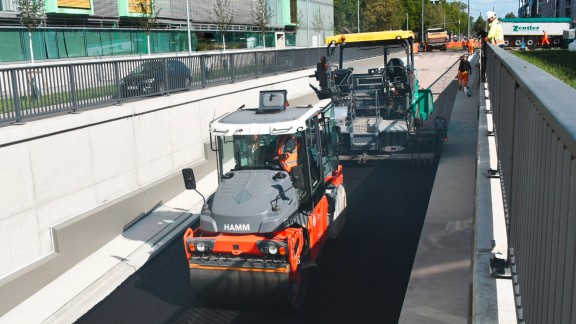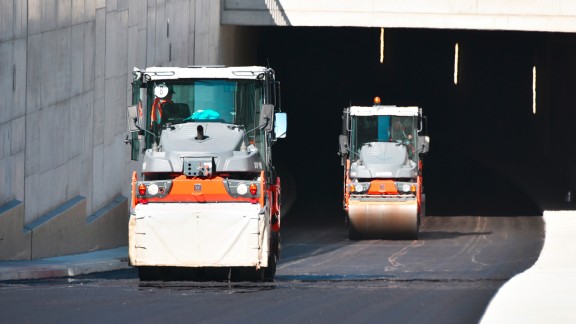Strict specifications for paving the road tunnel under Karlsruhe’s Kriegsstrasse road: in order to reduce emissions, the Schleith/Züblin consortium was permitted to use only construction machinery with a diesel particulate filter (DPF) and reduced-temperature asphalts.
As tried and tested team players, Vögele road pavers and Hamm tandem rollers not only satisfied the specifications, but also ensured efficient, high-quality paving.
The centre of Karlsruhe around the Kriegsstrasse road has been undergoing a complete rebuild since 2019. This former wide thoroughfare is to become a landscaped tram track with avenues of trees including cycle paths and plenty of space for pedestrians. At the same time, an underground train line is being built and through traffic is being diverted into a road tunnel 1.6 km long.
